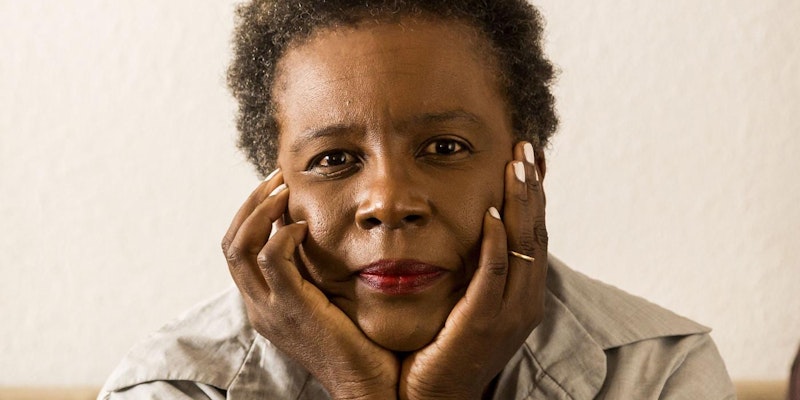
Shannon Mattern | Fall 2017

What is recognized and represented as “knowledge” in the archive is inextricable from the institutions that authorize its contents into discursive existence (from Foucault’s Order of Things). But from a media studies perspective, any (re)production of knowledge will render multiple processes of reception, feedback loops, networks of information.
Hal Foster’s analysis of ‘archival artists’ and their practices provides a model for re-imagining archive “retrieved in a gesture of alternative knowledge or counter-memory” (4). Neither internet database art nor white-walled museum art, archival art re-positions the spectrum of archival material in a “matrix of citation and juxtaposition” (5) to allow different unfoldings of history and memory for the viewer.
Although embedded in the digital, this formulation reminded me of a panel I attended earlier in October, at NYPL’s Schomburg Center for Research in Black Culture, where author Claudia Rankine launched The Racial Imaginary Institute, an archive of artists working through notions of race and power. Rankine described this project as a website of “deep memory,” that confronts the “unitedness of whiteness” and the “capacity to hold difference in the united states” with a commitment to the counter-narrative.
As Foster suggests, “archival art is rarely cynical” and “concerns love as much as knowledge” (6). If you are familiar with Rankine’s nonfiction (a must read – Don’t Let Me Be Lonely), there is a rather depressive but painfully real register to her writing as a black woman voicing ‘micro-aggressions’ in a racially-triggered world. In contrast, she expressed a serious optimism in this collaboration with artists making possible the ‘institutionalization’ of intertextual truths in the face of fake news (which is not new).

Alexandra Bell’s Counternarratives precisely challenges the institutionalization of information. Making editorial notes and black-out text on New York Times articles and making massive prints to wheat-paste on public walls of Brooklyn, Bell’s work thinks about “historical revisionism” as part of daily archival practice. In a world where people of color cultures have had their history written over for them, Bell recovers the agency for artists to rewrite their archives from the margins.
Because of the diversity of mediums represented in their website archive (journalism, sculpture, conceptual art, performance, visual arts and more) and allowing “asynchronous objects to occupy a common space” (Joselit 18), The Racial Imaginary Institute constitutes a kind of “aggregate” of awareness on race and its power networks. It is open to the public to submit material and thus activates the promise of the archival impulse.

RESEARCH GRANTS 2018-19: DEVIANT PRACTICE
In 2016 the Van Abbemuseum launched the research programme Deviant Practice. Following the conclusion of nine research projects over the past year, we are seeking new proposals from artists, curators and writers for 2018. Researchers will be awarded a grant of 2,000–10,000 EUR depending on the project for a mutually agreed period of work in and with the museum.
ABOUT THE RESEARCH PROGRAMME: DEVIANT PRACTICE
We understand deviance as veering off the entrenched path. For the modern art museum such as Van Abbemuseum these paths emerged from the west’s understanding of itself and by inference its relationship to others. Deviance therefore necessarily involves challenging long-held institutional, racial, geo- and bio-political assumptions. We understand the prefix “de” in deviance in relation to notions of demodernising, decolonising, deprivileging or decentralising—key strategies we hope to continue to explore. We also understand deviance as an opportunity to reflect on the manner in which we approach our own practices and protocols: questioning past suppositions, hierarchies and modes of working might be one way to institute deviance. At the same time, deviance should also concern itself with how we find paths through the present and towards the future.
TWO RESEARCH FRAMEWORKS: Archives & Constituencies
DEVIANT PRACTICE 2016–17
Descriptions of current research projects can be viewed here.
SUBMITTING PROPOSALS 2018–19
Proposals should be sent to opencall@vanabbe.nl by the November 17, 2017.
To read more about this research grant for artists, curators and writers, CLICK HERE

Founded by poet and McArthur Fellow Claudia Rankine, The Racial Imaginary Institute (TRII) is an interdisciplinary cultural laboratory of writers, activists, scholars, and artists, dedicated to the work of engaging the concept of the racial imagination, specifically critiquing the costs and means by which whiteness and institutional racism have shaped cultural production, politics, and memory. This program will feature a discussion with Rankine and scholars, artists, and writers on art, activism and the archives. They will also explore how TRII’s new online archive will be used by artists and writers seeking to examine important conversations on race in the U.S. and across the globe through artistic practice.
Tue, September 26, 2017
6:30 PM – 8:30 PM EDT
Schomburg Center for Research in Black Culture
515 Malcolm X Boulevard
New York, NY 10037